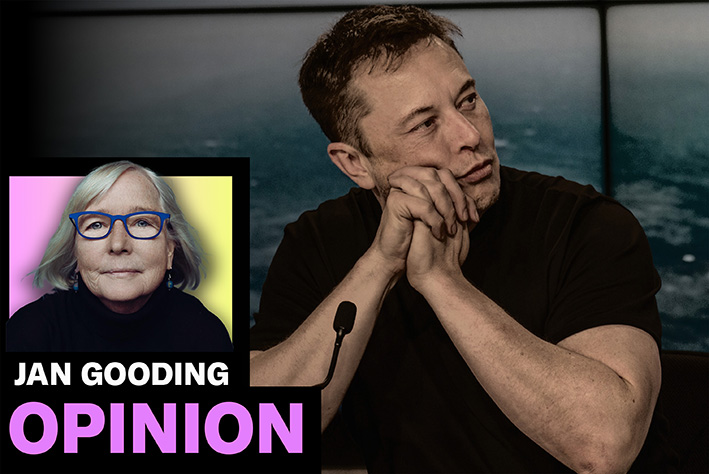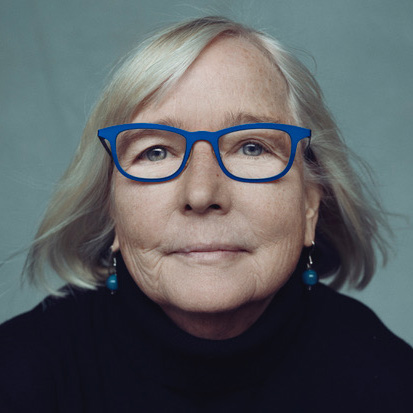5 steps that are helping me give up X

Opinion
Many have made the decision to leave X this year — but quitting is harder than it looks. Here are some tips on how to do it should you no longer want to be part of Elon Musk’s business empire.
I am sure I am not alone in having had a visceral response to the photo of Donald Trump, Elon Musk and Robert F Kennedy Jr sitting on a private jet eating McDonald’s.
Described by Carole Cadwalladr in The Guardian as the “broligarchy”, she predicts a particular kind of “post-truth” authoritarianism, with male tech billionaires at the centre influencing events.
I read the advice in her column on how to survive this new world. The one observation that leapt out was: “There is such a thing as truth. There are facts and we can know them.”
It has made me reflect deeply about my own sources of information and to face up to the moment by avoiding the peddlers of “alternative facts”. In particular, I am compelled to address my addiction to X. The time has come to finally let go.
It’s a choice
I have watched the swaggering behaviour of Musk both on and off X with a mixture of fascination and growing dismay.
Given I have a choice about whether to be a customer, and therefore part of his business empire, I find I don’t want to be any more. In fact, I have known this for some time.
I tried to escape before. In July 2023, I started an account on Threads and tried to get involved, but it didn’t last long. I flipped back and forth between Threads and X, finding that the people I followed were posting the same content on both. So, gradually, I just found it easier to go to one place: X.
During 2024, I have watched various individuals and organisations announce that they were leaving X. Initially because they say they simply find the nature of interactions too negative and upsetting, but latterly because there is a level of unease around perceived interference with certain accounts.
Whether it be the number of followers, the visibility of posts or the lack of protection from other users, X has felt to be an increasingly volatile place to be.
A blue alternative
So where to go? In one farewell post on X, someone wrote: “The future is blue!”
Bluesky had begun in 2019 as a research initiative at Twitter. Breaking away as an independent company in 2021, its development accelerated once Musk acquired Twitter.
Jack Dorsey, former CEO of Twitter, had been closely involved. Therefore it can be no accident that many of its features are reminiscent of original Twitter, including strong moderation. It has put on approximately a million users a day since the US election results were announced and reached 20m by 19 November.
Strong commitment
Given such strong reasons to switch to another brand, I have been troubled by my own inability to do so.
Behavioural economics teaches us that people naturally have loss aversion. We feel the pain of losing something more intensely than the pleasure of gaining something of equal value. Here in lies the rub.
I joined X in December 2010 and, in the last 14 years, have built up a following. More importantly, I am following 4,200 accounts that represent the careful curation of people I want in my information feed. Conscious of the dangers of being in a “bubble”, I have made sure I have been exposed to a broad church of political persuasions.
Indeed, one of the joys of X is watching people react in the moment to live events in a very authentic way and before they can be influenced by others. Moving somewhere else means I will have to start all over again.
That is more than a pain; it’s a genuine loss and setback.
Shared behaviours
Brian Moore, the former England rugby player, speaks for all of us when he posted on Bluesky: “It took 13 years to build a following of nearly 300K on Twitter and that reach was really useful for charity stuff and so on. It will take a lot of time to replicate that here, but I would rather that than have to endure a daily hate-fest.”
Another key insight from behavioural economics is the power of “reciprocity”.
People are more likely to give something up if the other party has also given something up, however small. I find being part of a herd of people similarly prepared to sacrifice considerably larger followings, in order to make a fresh start, both reassuring and motivating. Everyone being back at square one creates a moment of solidarity.
Giving up the habit
The addictive nature of social media has been well-documented. The user experience has been designed to activate the same reward pathways that are triggered when using addictive substances.
Apparently, when we spend time on social media platforms, our brain releases small doses of dopamine as if to reward us for such pleasurable activity.
After my failed attempt to leave in 2023, I knew I was going to have to be far more radical if I was to change my behaviour this time around. I found a guide from Harvard Health Publishing recommending five simple steps to help me move forward in my adoption of Bluesky over X.
Set a quit date: It is helpful to choose a meaningful date. So I chose 18 November, the 45th anniversary of my mother’s death, and will review my progress on that date in a year’s time.
Change your environment: Removing any reminders of your addiction helps to disrupt habits. I moved the X app from my line of sight on my homepage and favourite bookmarks.
Distract yourself: I am setting a bit of time aside each day to do some housekeeping on Bluesky to improve my engagement by finding new people to follow.
Review your past attempts at quitting: I have resolved to learn from last time by not checking back and forth between Bluesky and X. I will simply rely on people posting the same content in both places. While I may miss a few posts I might have enjoyed, I am certainly not missing all the anger and nastiness.
Create a support network: Even writing this today is part of my process of making my commitment public — as well as encouraging as many of you reading to follow suit in the hope that I will find you, too, in a far preferable place.
 Jan Gooding is one of the UK’s best-known brand marketers, having worked with Aviva, BT, British Gas, Diageo and Unilever. She is now an executive coach and is also chair of Pamco and Utopia. She writes for The Media Leader each month.
Jan Gooding is one of the UK’s best-known brand marketers, having worked with Aviva, BT, British Gas, Diageo and Unilever. She is now an executive coach and is also chair of Pamco and Utopia. She writes for The Media Leader each month.





